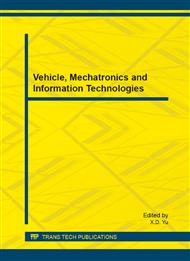p.1873
p.1877
p.1881
p.1886
p.1891
p.1899
p.1903
p.1907
p.1911
Empirical Analysis of the Demand for Interpretation System of World Cultural Heritage Based on Optimized Selection Model and Mathematical Physics Equations
Abstract:
World cultural heritage is the marrow of an ethnic culture. When ethnic culture exchanges with other world cultures, how to convey cultural information efficiently and exactly to avoid cultural conflict and distortion is the problem that English interpretation system of world cultural heritage should focus on and deal with. This paper will research on the necessity of the English interpretation system of the cultural heritage firstly, then set Dujiang yan of Qingcheng mountain as an example to analyse this topic with the math modeling thought, at last put forward to build the optimization English interpretation system of Sichuan province. It will offer theory and scientific practice for this area to some extent.
Info:
Periodical:
Pages:
1891-1896
Citation:
Online since:
August 2013
Authors:
Price:
Сopyright:
© 2013 Trans Tech Publications Ltd. All Rights Reserved
Share:
Citation:


